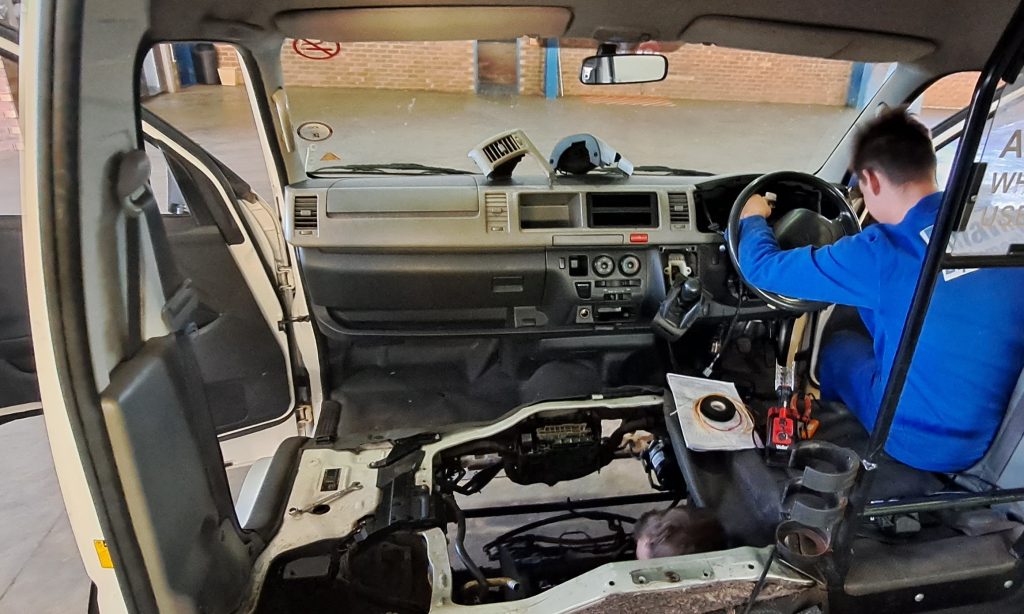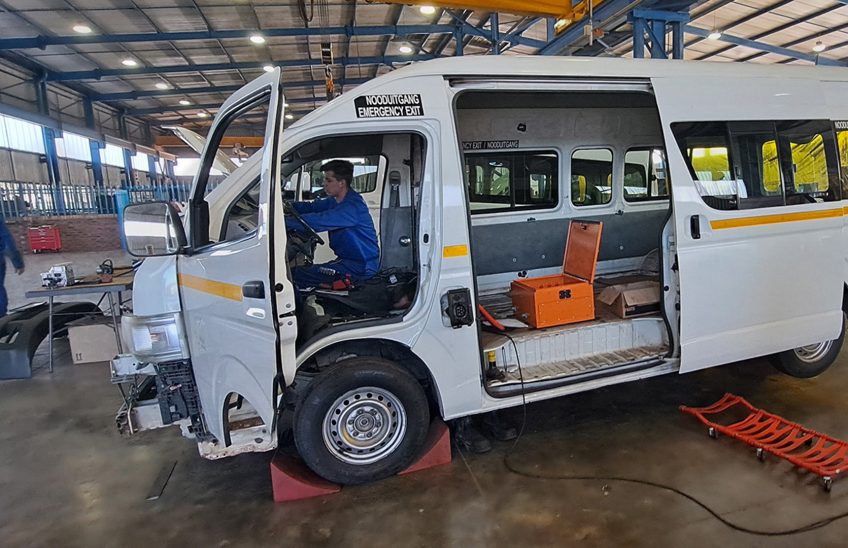South Africa’s electric vehicle manufacturers have a golden opportunity right now. They’re in a great position to set up local factories and start producing electric vehicles right here on African soil. Most of the locally manufactured petrol cars are being exported, and this boon to the economy will end with developed countries transitioning to electric vehicles in the run-up to 2035.
Leading the way in this endeavour are Professor Thinus Booysen and his team at the Department of Electrical and Electronic Engineering at Stellenbosch University. They joined forces with Rham Equipment to retrofit a minibus with electric propulsion. This means converting a petrol or diesel minibus to an electric vehicle. Here’s a sneak peek of the first electric taxi of its kind in South Africa:
Background
South African electric vehicle manufacturers are presented with a unique opportunity to establish production plants within Africa for local electric vehicle manufacturing.
Currently, the economy is benefiting from the export of locally produced petrol cars. However, this advantage may soon diminish as developed countries are shifting towards electric vehicles, potentially by 2035 or earlier.
Professor Booysen suggests that thousands of jobs could be in jeopardy if South Africa lags behind in the transition to electric vehicles. He emphasises that both the automotive industry and the government need to be proactive in this shift.
In a pioneering move, Professor Booysen and his team at SU, in collaboration with Rham Equipment, have successfully converted a minibus from fuel-based propulsion to electric. This signifies a promising step towards a greener and more sustainable future for transportation in Africa.

“Remaining in the slow lane of the electric vehicle transition could put thousands of jobs at risk,” says Booysen, who holds the research chair in the Internet of Things. “The automotive industry and our government cannot afford to be asleep at the wheel.”
Prototype Taxi Currently Being Tested
The prototype electric taxi is currently being tested for road safety and performance. The retrofitting of minibuses with electric propulsion is seen as a way to encourage the adoption of electric vehicles in the informal sector, where more than 70% of trips in South Africa are made by minibuses. The retrofitting project received funding from the South African National Energy Development Institute (SANEDI), and Transport Services at Stellenbosch University donated one of the minibuses for the project.

Features and Future
The retrofitted minibus features an advanced regeneration system that harnesses the energy generated during deceleration and downhill driving, enhancing its energy efficiency and overall range. The minibus has an estimated range of approximately 120 km and a maximum speed of 120 km/h.
It is equipped with an electric motor power of 90 kW and a battery capacity of 53.76 kWh. The retrofitting project is just the beginning, and future iterations and advancements in technology are expected to lead to further improvements in charging times, longer ranges, and overall performance. However, one challenge to the adoption of electric vehicles in South Africa is the electricity supply.
Read the Stellenbosch University press release by Alec Basson at https://www.sun.ac.za/english/Lists/news/DispForm.aspx?ID=10106 and the research paper, Aligned Simulation Models for Simulating Africa’s Electric Minibus Taxis, at https://www.mdpi.com/2032-6653/14/8/230





